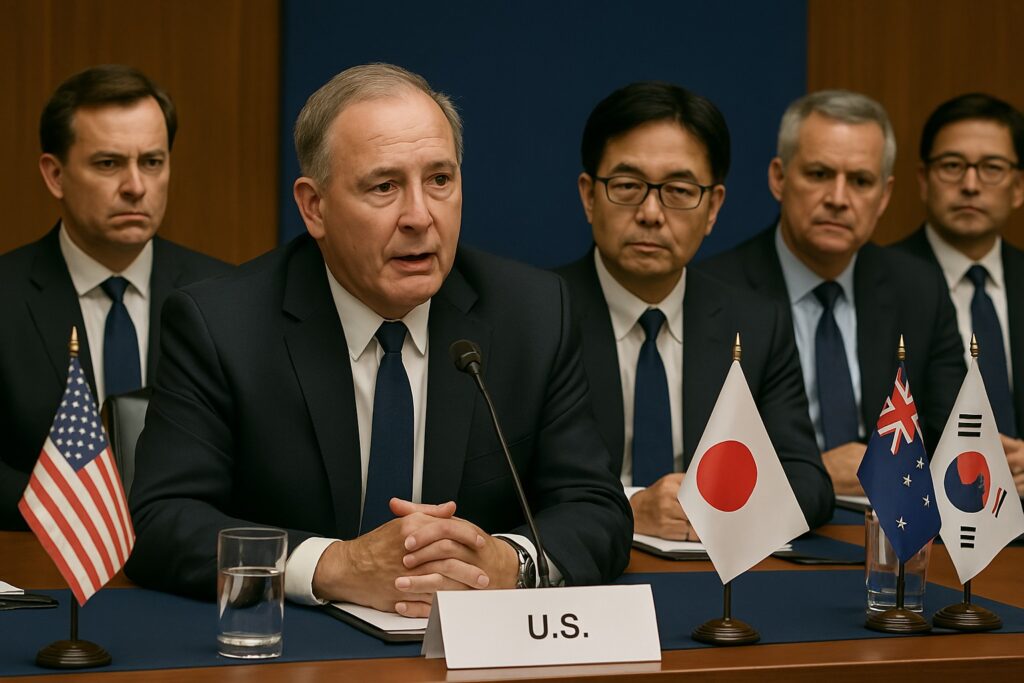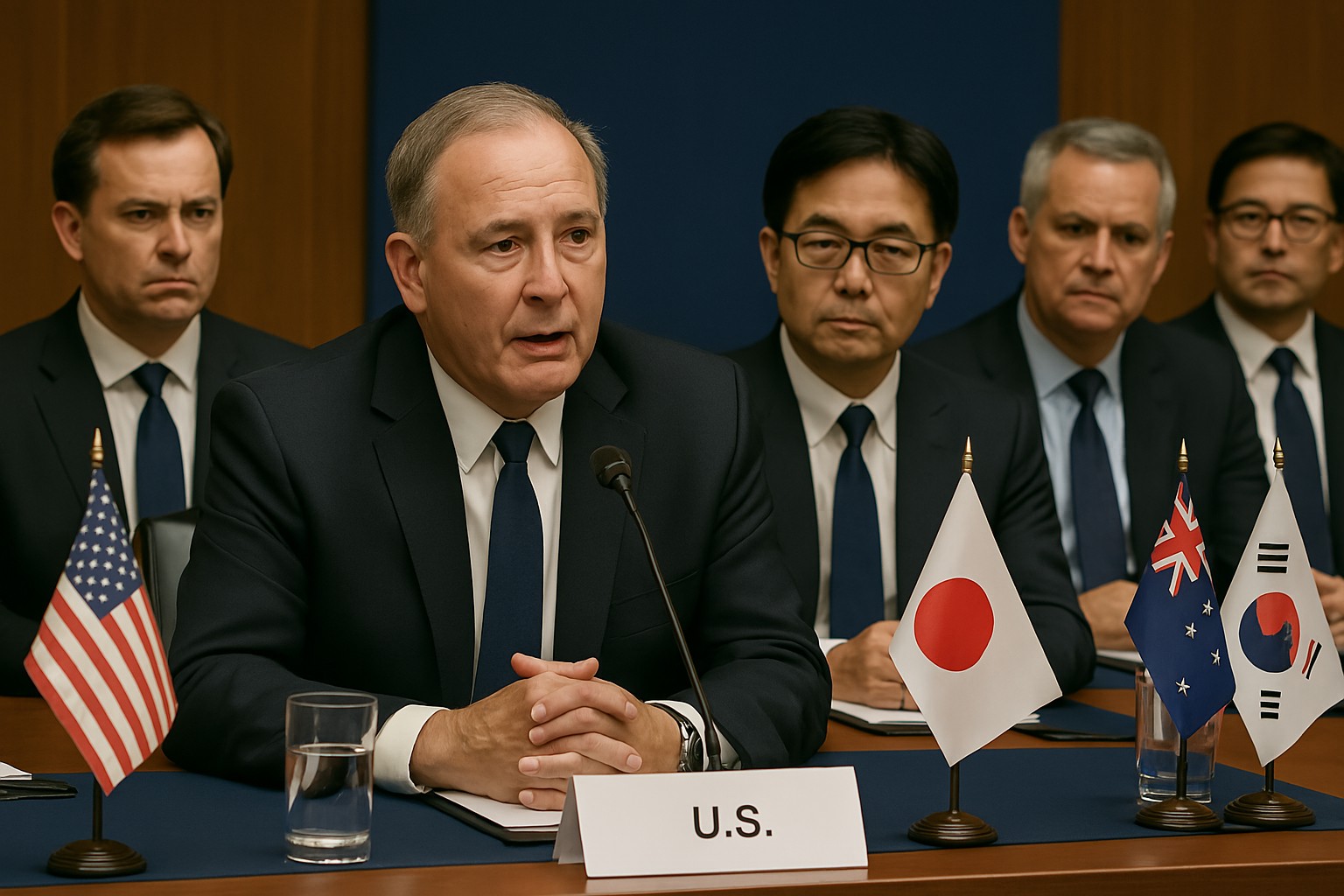
The Asia-Pacific Policy Strategy Dialogue (APPSD) concluded in London with a resounding call for a new organising principle: “America First, Allies Always.” The summit, attended by defense and policy leaders from the U.S., U.K., Japan, Australia, and South Korea, emphasized the need for integrated deterrence against the rising influence of the China-Russia-Iran-North Korea axis — dubbed “CRInK” by strategists.
The keynote, delivered by retired U.S. Army officer David Maxwell, rejected the false dichotomy between Taiwan and Korea, arguing for simultaneous strategic engagement across flashpoints. “Weakness in one invites adventurism in the other,” he warned. The address proposed a “Two Plus Three” framework for the Korean Peninsula, combining military readiness with human rights diplomacy.
Central to the summit was the concept of Strategic Agility Platforms — mobile, multi-domain hubs designed to respond to crises across the Indo-Pacific. These platforms would integrate cyber, space, and conventional assets, allowing allies to punch above their weight and counter authoritarian expansion.
The dialogue also spotlighted the ideological contest between open and closed societies. Delegates stressed that alliances must be values-based, not transactional, and that human rights should be elevated as a frontline strategic tool. “We must act with clarity. We must act together. We must act now,” Maxwell urged.
Critics of the summit argue that such rhetoric risks escalating tensions, but right-leaning analysts see it as a long-overdue pivot from strategic ambiguity to moral clarity. The July 15 gathering marks a shift toward proactive alliance-building, with deterrence, influence operations, and sovereignty preservation at its core.
As the Asia Pacific braces for multidomain competition, the APPSD’s message is clear: unity is strength, and strategy must be rooted in shared values — not just shared interests.



